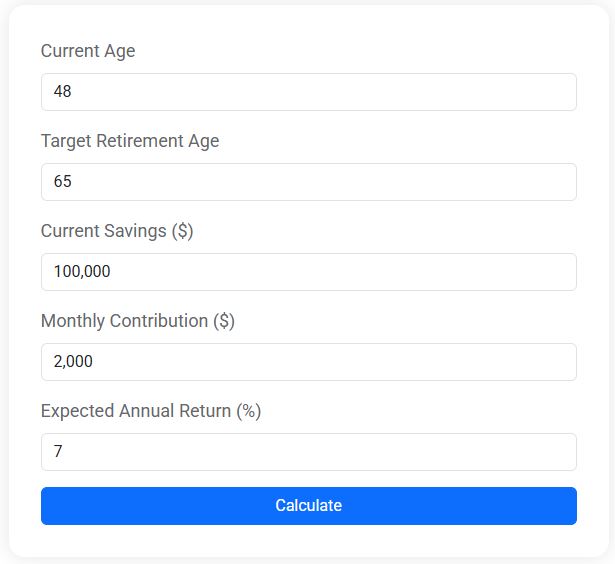Retiree Health Insurance Options: Explained

Navigating retiree health insurance is crucial for financial security in retirement, with options including Medicare, Medigap, Medicare Advantage, employer-sponsored plans, and Health Savings Accounts (HSAs). Medicare serves as the primary source of coverage, but it may require supplements like Medigap for additional costs, while Medicare Advantage offers all-in-one plans with extra benefits. Employer-sponsored plans and HSAs provide further avenues for coverage and savings, emphasizing the importance of early planning and informed decision-making to ensure a comfortable retirement.
Navigating the labyrinth of health insurance options as a retiree can feel daunting. With a lifetime of work behind you, the last thing you want is endless paperwork and confusing terms. However, understanding your health insurance options is critical to ensuring financial security during your golden years. Whether it's Medicare, Medigap, Medicare Advantage, an employer-sponsored plan, or a Health Savings Account (HSA), each option offers unique benefits and challenges. By taking the time to explore these choices, you'll be better equipped to make informed decisions that suit your lifestyle and health needs.
Let's dive into the most common options available to retirees. We will unpack each, highlighting what they offer, potential pitfalls, and how they can fit into your overall retirement plan. Remember, the key is to plan early and stay informed, as the right health coverage can be as valuable as a well-funded 401(k).
Medicare: The Foundation of Retiree Health Coverage
Medicare is often the first stop for retirees when considering health insurance. As a federally funded program, it's available to those aged 65 and older, as well as to some younger people with disabilities. Traditional Medicare is divided into Part A, which covers hospital insurance, and Part B, which covers medical insurance. Most people don't pay a premium for Part A, but Part B typically requires a monthly premium.
The program is a solid starting point, but it's not comprehensive. According to the Kaiser Family Foundation, Medicare covers only about 80% of medical expenses, which means beneficiaries might face significant out-of-pocket costs. This is why many retirees choose to supplement their coverage with additional plans.
Medigap: Bridging the Gaps in Medicare
That's where Medigap, or Medicare Supplement Insurance, comes into play. Medigap policies are sold by private companies and help pay for costs that Original Medicare doesn't cover, like copayments, coinsurance, and deductibles. With ten standardized plans available, it's essential to compare the benefits and premiums of each.
Consider the story of Bill and Nancy, a retired couple from Ohio. They found that a Plan G Medigap policy worked best for them, covering most of their out-of-pocket expenses, including Part B excess charges, which can be a hidden cost for many. It's crucial to shop around and find a policy that fits your health needs and budget.
Early Retirement Calculator
Thinking about retiring early? Our free Early Retirement Calculator helps you figure out exactly how much you need to save and invest to reach financial freedom sooner. Whether you're aiming for early retirement at 55, 50, or even 40, this tool gives you a personalized projection based on your current savings, monthly contributions, and expected return on investment. Start planning your path to financial independence today.
Medicare Advantage: An All-in-One Alternative
For those looking for a more bundled approach, Medicare Advantage (also known as Part C) offers an appealing alternative. These plans, offered by private insurers, provide all the benefits of Part A and Part B, often including additional perks like dental, vision, and even gym memberships.
However, as with anything, there are trade-offs. According to AARP, some Medicare Advantage plans have network restrictions, meaning you might be limited to certain doctors and hospitals. John, a retiree from Florida, chose a Medicare Advantage plan for its extra benefits but later found the network limitations frustrating. It's a vivid reminder to weigh the benefits against potential drawbacks carefully.
Employer-Sponsored Plans: Extending Workplace Benefits
Some lucky retirees may have access to employer-sponsored retiree health plans, which can be a valuable bridge into Medicare. These plans often come with lower premiums and comprehensive coverage, making them an attractive option if available.
For example, Susan, who retired from a large corporation, was able to continue her employer-sponsored health plan into retirement. This plan covered many of the costs that Medicare did not, providing her peace of mind and financial stability. It's worth checking with your former employer to see if this option is available to you.
Health Savings Accounts (HSAs): A Flexible Savings Tool
An often overlooked option is the Health Savings Account (HSA). While you can no longer contribute to an HSA once you enroll in Medicare, if you've been contributing to one during your working years, you can still use those funds tax-free for qualified medical expenses. This flexibility makes HSAs a powerful tool in managing healthcare costs in retirement.
Take the case of Tom, who diligently contributed to his HSA over his career. Now retired, he uses his HSA funds to pay for prescription drugs and other qualified expenses, alleviating the financial burden. This strategy highlights the importance of early planning and taking advantage of tax-advantaged savings options while still working.
The Importance of Early Planning and Informed Decision-Making
Choosing the right health insurance in retirement isn't just about comparing premiums. It involves assessing your health needs, understanding the intricacies of each option, and considering long-term financial implications. Early planning is crucial, as some choices, like Medigap, are best made during specific enrollment periods to avoid penalties or coverage denials.
As financial advisor Jane Smith notes, "The earlier you start planning for healthcare in retirement, the more options you'll have." Taking the time to educate yourself on these options will pay dividends down the road, ensuring you can focus on enjoying retirement rather than worrying about medical bills.
Final Thoughts: Crafting Your Health Insurance Strategy
Ultimately, the right retiree health insurance strategy is personal and tailored to your unique circumstances. There is no one-size-fits-all solution, but with careful consideration and planning, you can build a coverage plan that supports your health and financial well-being.
Whether you're just beginning to think about retirement or are well into your planning, staying informed and proactive is key. By understanding the nuances of Medicare, Medigap, Medicare Advantage, employer-sponsored plans, and HSAs, you can make choices that ensure a comfortable and secure retirement. So, grab a cup of coffee, sit down, and take the time to map out a plan that works for you. Your future self will thank you.








